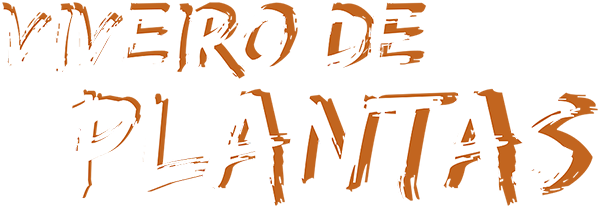Legado das Águas, Brazil’s largest private Atlantic Forest reserve, is the first territory that will be subject to the application of PSA Carbonflor, an unprecedented methodology for measuring ecosystem services, including forest carbon, through Payment for Ecosystem Services (PES).
The initiative results from a partnership between Reservas Votorantim – manager of Legado das Águas –, and ECCON Soluções Ambientais, who launched the methodology in 2022, seeking, through this initiative, to value biodiversity conservation, water quality and supply services, as well as forest connectivity, generating value by maintaining standing forests through the creation and sale of C+ (carbon plus).
The credits generated in PSA Carbonflor will be priced based on the valuation of the Ecosystem Services generated by conservation and their contribution to human well-being and climate change mitigation. Additionally, they will incorporate a social component (co-benefits) in the payment valuation, thus contributing to the Global Agenda for Sustainable Development.
Supported by its pioneering spirit, technical diligence and strong partnerships, Reservas Votorantim presents yet another nature-based solution, generating value through preserving the standing forest.
Watch the video and learn about the methodology
The methodology, now available to Brazilian conservation-driven , improves the measurement of environmental services and the attainment of goals related to decarbonization and biodiversity protection through forest conservation, particularly in the Atlantic Forest, contributing to climate stability challenges not just within Brazil, but also on a global scale.
For further details, please visit our website Reservas Votorantim.
Questions and answers about the methodology and its application in Legado das Águas
It is an unprecedented methodology for measuring ecosystem services, including forest carbon, through Payment for Ecosystem Services (PES). This methodology proposes valuing biodiversity conservation, water quality and supply services, as well as forest connectivity, generating value by maintaining standing forests through the creation and sale of C+ (carbon plus) carbon credits.
The PSA Carbonflor methodology was developed through a partnership between Reservas Votorantim, the company that manages Legado das Águas, and ECCON Soluções Ambientais, with the support of specialists and researchers from Brazil and abroad.
Due to the relevance of this agenda, the PSA Carbonflor methodology underwent a public consultation at the end of 2022. Input and suggestions were received from law firms, private associations, institutes, private companies, civil society and public agencies.
In addition to the contributions, two formal letters of support for the Methodology were also issued. One came from the law firm Pinheiro Neto Advogados, and the other from Companhia Ambiental do Estado de São Paulo (CETESB).
The methodology innovates considering the effects of climate change on forests due to global warming. It also allows for the inclusion of areas not addressed by other methodologies, such as the Atlantic Forest biome. This possibility enables strategies that create a connection between conservation, PES and voluntary carbon markets, contributing to the efforts towards preserving the remaining 12.4% of Brazil’s Atlantic Forest, according to SOS Mata Atlântica.
The credits generated through PSA Carbonflor, called C+, will be priced based on the valuation of the Ecosystem Services generated by conservation and their contribution to human well-being and climate change mitigation. Additionally, they will incorporate a social component (co-benefits) in the payment valuation, thus contributing to the Global Agenda for Sustainable Development.
As a result, Carbonflor PES is available as a methodology for generating carbon credits that will foster efforts to maintain forests in Brazil, not only in the Atlantic Forest biome, but in other biomes/territories that have not been served by the existing methodologies.
The Payment for Environmental Services Law itself, 14.119/2021. This law recognizes carbon associated with forests as one of the environmental ecosystem services. This is also in line with the Forest Code, in its article 41, I, item a.
The methodology enhances the measurement of Environmental Services, meeting decarbonization targets and safeguarding biodiversity through forest preservation, notably the Atlantic Forest. This contributes to climate stability challenges, both within Brazil, and globally. Additionally, it facilitates progress in the carbon market by adopting standards that are tailored to the specific needs of Brazilian biomes, including PES projects.
The methodologies currently applied internationally fail to consider Brazil’s specific characteristics, including legislation, biomes, phytophysiognomies, biodiversity, and other ecosystem services present in preserved areas. Hence, the methodology presents a program designed to address these gaps, as well as mitigate the impacts of climate change on forests.
It is worth noting that this initiative complies with the principles established in the Paris Agreement and the Climate and Biodiversity Conferences.
No, and it is too early to talk about financial issues. PSA Carbonflor will be applied in an unprecedented way at Legado das Águas and, after its application, we will understand how to sell the C+ generated in the area.
Reservas Votorantim, the manager of Legado das Águas, actively seeks new business opportunities to generate revenue for maintaining the standing forest. The company has been researching the carbon market for some time, but until now, it hasn’t been feasible for the reality of Legado das Águas, located in the Atlantic Forest. We identified an opportunity when the PES law was enacted in 2021. However, we were unaware of a methodology containing mechanisms capable of measuring, reporting and evaluating greenhouse gas emissions reductions to establish forest Carbon Credits from the Atlantic Forest. PSA Carbonflor presents itself as an alternative in this process.
Some areas of native forest within the boundaries of Legado das Águas were included in this first application phase, taking into account all the methodology criteria of PSA Carbonflor.
Legado das Águas is covered by Atlantic Forest vegetation in an advanced stage of regeneration. It is protected by Federal Law 11.428/2006 (Atlantic Forest Law), and regulated by Federal Decree 6.660/2008. This decree stipulates that activities such as cutting, suppression, and exploitation of vegetation in this biome must adhere to a distinct approach.
This distinction implies that, for Legado das Águas, vegetation suppression is only permissible with a decree of public utility, characterizing these actions as serving national security and health protection objectives. Alternatively, suppression can occur in cases of essential infrastructure projects of national interest, related to public transportation, sanitation, or energy services, as declared by federal or state authorities.
In this sense, due to it being specially protected, simply avoiding deforestation in the area could be seen as not meeting the criteria required in current carbon project methodologies. In other words, unlike in other biomes where conservation beyond legal requirements can be demonstrated as additional avoided deforestation (REDD model), it would not apply in the case of the Atlantic Forest because vegetation suppression is already prohibited by law, even if the property has native vegetation surplus.
Therefore, PSA Carbonflor comes as an alternative in this context, as it takes into account various criteria based on conservation efforts, in addition to the fact that climate change is already affecting the forest, reducing the biomass of these territories for the upcoming decades.
Initially, the idea is that ECCON will be responsible for validating and verifying the credits from Legado das Águas using a platform called ECCON Data. However, the methodology is meant to be open and available to be applied in other areas.
It is worth remembering that there are other initiatives and modalities aimed at remunerating providers of Environmental Services in Brazil, also through the PES Law. Therefore, the methodology was not designed to create a new market, but to expand the already existing Carbon Market.
Initially, the C+ generated at Legado das Águas will be available for the Voluntary Carbon Market, i.e., those companies which, by law, have no obligation to offset their emissions. These are companies that go beyond their legal obligation by investing in a positive agenda, adopting ESG (Environment, Social and Governance) strategies and reducing biodiversity loss. Hence, these companies strengthen their competitive role in the market with the reputation attribute of their concern for preserving Brazilian biomes, particularly the Atlantic Forest in this context.
Since 2012, with the creation of Legado das Águas, and long before the possibility of joining the carbon market, Reservas Votorantim has invested in a Social Action Program benefiting Vale do Ribeira, particularly the cities of Tapiraí, Miracatu and Juquiá, where Legado das Águas is located.
The actions, initiatives and projects included in Reservas Votorantim’s Social Action Program through Legado das Águas and in partnership with the Votorantim Institute have already directly and indirectly benefited more than 60,000 people in the areas of Education, Health, Sport, Leisure, Culture and support to Public Management.
Whether or not Reservas Votorantim successfully sells the Carbon Credits generated at Legado das Águas will not alter its social engagement in the region.
© 2023 – Legado das Águas • All rights reserved


